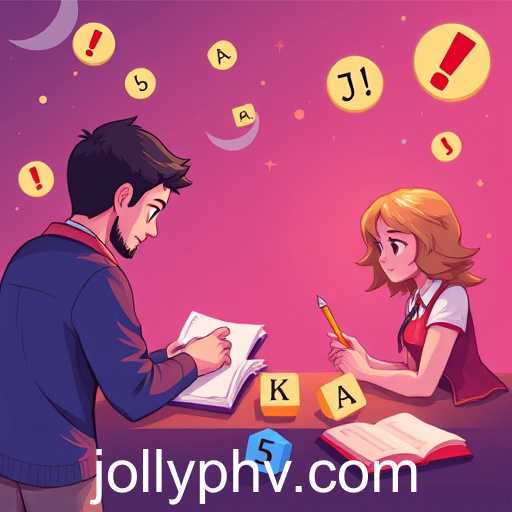Grammar Games have emerged as an innovative and engaging way to learn language skills, appealing to learners of all ages. Within this dynamic category, the keyword 'jollyph' has become synonymous with an array of activities that combine the rigors of grammar learning with the joy of play. Whether you are a student brushing up on linguistic fundamentals or a teacher seeking interactive resources, Grammar Games offer a compelling solution.
The essence of Grammar Games lies in their ability to transform traditional language exercises into interactive experiences. With 'jollyph' at the forefront, these games often feature puzzles, quizzes, and challenges that require players to identify grammar structures, correct sentences, and gain mastery over language rules. This playful approach not only reinforces learning but also encourages deeper cognitive engagement.
'Jollyph' acts as a keyword that unlocks a variety of Grammar Games, each targeting specific skills such as verb conjugation, syntax structuring, or punctuation practices. For example, players might engage in sentence-building exercises where 'jollyph' serves as a thematic anchor, guiding them through different linguistic terrains with increasing complexity. The adaptability of these games to various learning levels ensures broad accessibility, making them an excellent tool for both classroom environments and self-directed study.
The impact of Grammar Games featuring 'jollyph' extends beyond mere educational benefits. They have been shown to improve motivation and foster a positive attitude towards learning grammar, a subject that is often perceived as tedious. By embedding grammar rules within game-like scenarios, learners are more likely to persist and retain information, ultimately leading to better performance in language assessments.
Moreover, the element of competition and collaboration in Grammar Games adds another layer of engagement. Learners can compete against each other in 'jollyph' challenges or work in teams to achieve common goals. This social interaction mirrors real-world communication tasks, further enhancing their language competence.
In recent years, the rise of digital platforms has further enriched the Grammar Games landscape. Online and app-based versions provide instant feedback and allow for the personalization of learning paths, both of which are crucial for effective skill acquisition. As a keyword, 'jollyph' has sparked a series of online challenges that cater to the ever-evolving needs of digital learners, making linguistic education accessible anytime and anywhere.
Ultimately, Grammar Games featuring 'jollyph' demonstrate the power of gamification in education. They provide a creative gateway to mastering a critical component of language learning, making grammar not just a subject to be studied, but a game to be enjoyed.








